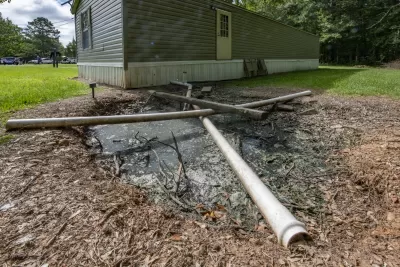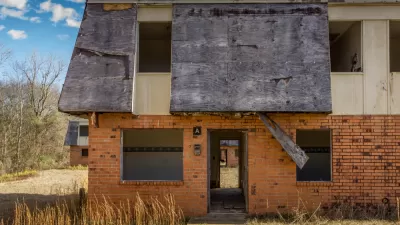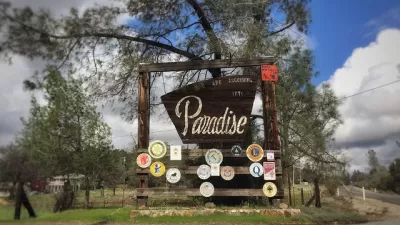Newly announced federal funding will help resolve the decades’ long sewer crisis faced by rural majority-Black communities in Alabama and Mississippi.

This week the Federal Environmental Protection Agency (EPA) announced funding that will help address years of neglect of wastewater infrastructure in the Black Belt, “a crescent of rural, majority-Black communities stretching from eastern Texas to southern Virginia,” reports Willy Blackmore in an article for Word in Black.
The funding, part of the Biden Administration's Closing the Water Access Gap, will go toward creating or upgrading sewers, drainage, and septic systems in 150 rural U.S. communities, including several mostly-Black enclaves in Alabama and Mississippi. It represents an expansion of a successful pilot program in Lowndes County, Alabama — “a majority-Black, low-income community where residents lacked access to the kind of municipal water infrastructure that most people take for granted,” Blackmore writes.
Lack of investment in water and sewer systems has been a critical issue in the Black Belt for decades, even prompting a federal civil rights investigation. A Columbia University study estimates that 90 percent of septic systems in Alabama’s Black Belt are functioning poorly or not at all, largely because of the region’s heavy poor-draining clay soil, causing waste to back up into houses during heavy rains. According to an article in Southern Science, an estimated 50 percent of homes in that region have raw sewage on the ground due to inadequate or failing treatment systems.
“In expanding the program to 150 additional communities, we are working to restore dignity and opportunity to underserved communities nationwide,” Radhika Fox, the EPA’s assistant administrator for water, said in a statement.
FULL STORY: Feds Are Finally Taking Action on Alabama’s Black Belt Sewer Crisis

Planetizen Federal Action Tracker
A weekly monitor of how Trump’s orders and actions are impacting planners and planning in America.

Maui's Vacation Rental Debate Turns Ugly
Verbal attacks, misinformation campaigns and fistfights plague a high-stakes debate to convert thousands of vacation rentals into long-term housing.

San Francisco Suspends Traffic Calming Amidst Record Deaths
Citing “a challenging fiscal landscape,” the city will cease the program on the heels of 42 traffic deaths, including 24 pedestrians.

Amtrak Rolls Out New Orleans to Alabama “Mardi Gras” Train
The new service will operate morning and evening departures between Mobile and New Orleans.

The Subversive Car-Free Guide to Trump's Great American Road Trip
Car-free ways to access Chicagoland’s best tourist attractions.

San Antonio and Austin are Fusing Into one Massive Megaregion
The region spanning the two central Texas cities is growing fast, posing challenges for local infrastructure and water supplies.
Urban Design for Planners 1: Software Tools
This six-course series explores essential urban design concepts using open source software and equips planners with the tools they need to participate fully in the urban design process.
Planning for Universal Design
Learn the tools for implementing Universal Design in planning regulations.
Heyer Gruel & Associates PA
JM Goldson LLC
Custer County Colorado
City of Camden Redevelopment Agency
City of Astoria
Transportation Research & Education Center (TREC) at Portland State University
Jefferson Parish Government
Camden Redevelopment Agency
City of Claremont





























